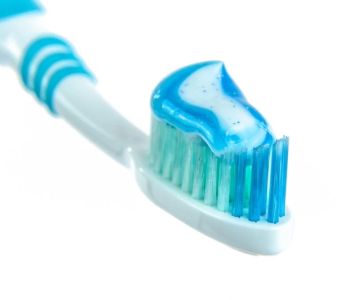What Are Swollen Gums?
Swollen gums are not just a minor annoyance; they often indicate an underlying health concern. They can be a symptom of gingivitis and other gum diseases. However, they can also be associated with other conditions such as infections, vitamin deficiencies, hormonal fluctuations, or even serious health problems like blood cancers. Understanding the possible causes and appropriate treatments is crucial for maintaining good oral and overall health.
Causes of Swollen Gums
There are numerous reasons why gums might become swollen. Dental problems frequently play a significant role. For instance, having something trapped in your gums, like a popcorn hull, or dealing with issues such as an abscessed tooth, gingivitis, periodontitis, trench mouth, gingivostomatitis, poorly fitting dentures, orthodontic treatment, tooth decay, an infected tooth, a root fracture, or an unknown object lodged beneath your gums can all lead to gum swelling. Beyond dental issues, other causes include medication side effects, viral infections like oral herpes or HIV, fungal infections like thrush, vitamin B or C deficiencies, unmanaged diabetes, smoking, hormonal changes during puberty, pregnancy, and menopause.
Symptoms and Appearance
Swollen gums typically have a reddish or purplish color due to increased blood flow. They may appear smooth or shiny and often bleed. It's important to be vigilant for these signs as they can provide early indicators of an underlying problem.
Treatment Options
The treatment for swollen gums depends on the root cause. If gum disease is the culprit, a dentist or periodontist can recommend various treatments. Common dental treatments include antibiotics, increased brushing and flossing, tooth scaling and root planing, osseous surgery, the LANAP® procedure. For a dental abscess around one tooth, root canal therapy or tooth extraction might be suggested. If the swelling is not due to gum disease, healthcare providers will conduct tests to identify other potential health conditions such as infections, diabetes, or vitamin deficiencies and then recommend the appropriate treatment.
Home Remedies and Recovery
If swollen gums persist for longer than two weeks, it's advisable to schedule a dental appointment. In the interim, there are several home remedies that can help ease the symptoms. Daily brushing and flossing, rinsing the mouth with warm saltwater several times a day, and applying an ice pack to the face to reduce swelling and inflammation can provide some relief. With proper treatment, swollen gums can indeed go away. In some cases, the swelling may resolve on its own, such as when a food particle is removed. However, when gum disease is the cause, prompt treatment is essential for long-term oral health. The specific treatment depends on the underlying cause.
When to Seek Professional Help
You should contact a dentist or periodontist if gum swelling lasts for more than a couple of weeks. Severe pain that doesn't respond to medication also warrants immediate dental care. Prompt treatment can prevent the problem from escalating.
Common Questions and Considerations
If you have swollen gums around only one tooth, it could be due to something simple like food stuck in the gum, but it might also indicate a dental abscess. It's important to be aware that both periapical and periodontal abscesses can occur and, if left untreated, can spread and pose serious risks. Additionally, having braces can make it more challenging to maintain proper oral hygiene, increasing the risk of swollen gums. Vigorous daily brushing and flossing, along with the use of recommended dental tools, can help prevent this. During a dental visit, it's beneficial to ask your healthcare provider questions to better understand your condition and the available treatment options.
Conclusion
Swollen gums are not something to be ignored. They can be a signal of various health issues, ranging from common gum diseases to more serious underlying conditions. By understanding the causes, seeking appropriate treatment, and implementing simple home remedies when necessary, you can take steps towards better oral health and overall well-being. If you notice persistent gum swelling or have any concerns, it's always best to consult a healthcare professional for accurate diagnosis and effective treatment.







 Fine Dental Care4.0 (373 review)
Fine Dental Care4.0 (373 review) Perry Street Dental5.0 (200 review)
Perry Street Dental5.0 (200 review) Westridge Dental Group: Kasper Robert DDS4.0 (11 review)
Westridge Dental Group: Kasper Robert DDS4.0 (11 review) River Run Dental4.0 (1958 review)
River Run Dental4.0 (1958 review) Norton Family Dental4.0 (747 review)
Norton Family Dental4.0 (747 review) Dr. Michael P. Rutz, DMD5.0 (22 review)
Dr. Michael P. Rutz, DMD5.0 (22 review) The Importance of Oral Health Education During Pregnancy for a Healthy Pregnancy
The Importance of Oral Health Education During Pregnancy for a Healthy Pregnancy Best Tips for Brushing Your Teeth Properly for Healthy Gums: Essential Techniques for Oral Health
Best Tips for Brushing Your Teeth Properly for Healthy Gums: Essential Techniques for Oral Health Why Skipping Dental Checkups Can Lead to Bigger Oral Health Problems
Why Skipping Dental Checkups Can Lead to Bigger Oral Health Problems Advantages of Porcelain Dental Restorations
Advantages of Porcelain Dental Restorations How Can Diabetes Cause Tooth and Gum Problems? Preventing and Managing Oral Health Issues
How Can Diabetes Cause Tooth and Gum Problems? Preventing and Managing Oral Health Issues Healthy Habits for Promoting Good Oral Health and Hygiene: Tips for a Healthy Smile
Healthy Habits for Promoting Good Oral Health and Hygiene: Tips for a Healthy Smile